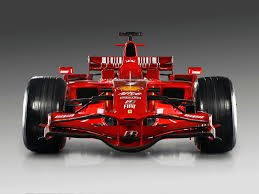
Marketing is a strong catalyst. In striving to be the best we can be, we're looking for any edge to help us achieve our goals. It is only natural that we look to nutrition. Depending on what you read and who you believe, we can follow a diet rich in carbohydrates. Or, we can rely heavily on fats because fat is a more dense source of fuel and we have enough fat stored in our bodies to complete 10 Ironmans back-to-back. There's vegetarian, fruitatarian, Paleo, vegan and so on. Much of it is based on personal belief as much as perceived and/or actual benefits. Confused yet?
I came across this video on the BBC, "Sugar vs Fat", which is arguably the most enlightening piece about nutrition that I've come across. Identical twin male doctors alter their diets for a month -- one follows a extremely high-fat diet while the other follows an extremely high-carb diet. Their body composition and blood profiles were measured at the beginning of the month as well as at the end. Their starting points were pretty darn similar (ex: 26% v 22% body fat). Some of the results are predictable while others may prove provocative.
Note
Conspicuously absent from this research is the part protein plays. A couple thoughts here. First, too much protein is not a good thing. The body can only process so much and what it can't process gets broken down into urea, which contains both nitrogen and ammonia, the latter of which can be toxic to the body. The rule of thumb for endurance athletes is 1.5-2g of protein for every kilogram of weight. Thought of another way, up to 1g of protein per pound of weight. This will provide enough "building blocks" to keep the body from cannibalizing its lean muscle mass and help promote healing and growth.
Weight Loss
What should not be a surprise is that the brother on the higher-fat/lower-carb diet lost more weight -- 4kgs vs 1.5kg. While the doctor stated a good amount of the loss came from cannibalizing muscle, we really can't know this because the pod in which the body composition measurements were taken only measure fat vs non-fat composition (which includes fluids). Undoubtedly, fluid loss factors into some of the weight loss, not just fat vs muscle.
Exercise and Performance
The brothers conducted a stress test on the bike. First, they "rode to exhaustion" for an hour. Then, they relied on their chosen fuel of choice -- pure fat or an energy gel -- and raced up the famous Box Hill in Britain. The point of the initial hour was to burn up much of the existing muscle glycogen so that each brother was mainly relying on the type of fuel to which they had committed themselves. It should not be surprising that the brother on the high-carb diet crushed his high-fat brother during the hill climb. This is because carbohydrates are an immediate fuel source and the body needs that immediate fuel, especially during more intense bouts of training and racing. Fat as part of a fueling strategy might be beneficial for ultra-athletes who are racing wholly aerobically. However, athletes who tip into anaerobic mode at times, will almost assuredly find better results with a quick fuel source such as carbohydrates.
Diabetes from a High-Fat Diet?
I'm no nutritionist, but this is one thing to which I raised an eyebrow. A low-carb, high-fat diet works well in reducing Type 2 Diabetes. However, the doctor running the tests on the brothers proclaims the high-fat brother's fasting glucose level is rising and almost out of the "normal" range. So, it's still normal then, right? And, the rise in glucose is not a trend upward. Rather, the glucose can rise and fall day-to-day. In fact, blood glucose drops after eating a low-carb meal, so I effectively threw out this aspect of the video.
The Carb/Fat Correlation
What I found most interesting was the aspect around general eating habits. Between an experiment the brothers did on the streets and one done in a lab with rats, one thing became more clear to me. In the lab, some rats were subjected to an all-carb diet, others to an all-fat diet, and a third group at cheesecake. The rats eating all carbs ate more calories by a wide margin yet really didn't gain any weight. The rats on all fat ate fewer calories than the rats on the all carb diet and likewise really didn't gain any weight. Now, here's what's interesting. The rats that ate cheesecake did not eat much in any one sitting, but grazed on the cheesecake all day long. These rats gained a lot of weight. It turns out that cheesecake is almost perfectly 50% carbs and 50% fat. The premise is that the receptors for each type of fuel are stimulated just enough to keep us eating but not enough to stop us eating because it is this combo that allows us to derive the greatest amount of pleasure from eating.
The brothers found a similar trend in their own experiment. The brothers went down the streets of NYC and London with boxes of donuts in 3 rows. One row was a higher-fat donut (cream-filled), one was higher-carb (extra frosting) and one was 50%/50% (a traditional glazed donut). Given the choice, the vast majority of people went straight to the traditional glazed donut. While not scientific, it is telling about society's greater choices around eating and fueling. How much of processed food gravitates toward the 50%/50% ratio?
The Takeaway from All This
For me, this is the biggest takeaway. Daily nutrition is most critical to how well we perform. This is because what we eat impacts how well we absorb nutrients, how many nutrients there are to absorb, how clean our engines run and how hard the body has to work at both assimilating the fuel as well as repairing itself. If the body is working overtime to adjust to and process what we eat, then it is spending less time repairing itself after a challenging workout or race. When I eat more cleanly, I feel better both day-to-day as well as workout to workout. My own rule of thumb is to shoot for about 80% of my meals being "healthy" -- balanced, home made, not processed.
To put a bow on this, as we age, we slow down. Our internal processes slow down; our body's ability to repair itself slows down; our performances slow down. We can do quite a few things to keep the slowing down process at bay. One of the most important things is the choice around what type of fuel we put in the machine every single day. Regardless of what type of diet you follow or your beliefs around organic vs GMO and so on, it really boils down to two things: (1) eat as much food as close to its natural state as you can, which helps you minimize the consumption of processed foods; and (2) a well-balanced approach to eating will help you avoid consuming things that are closely in-line with the dreaded 50% carb/50% fat ratio inherent in much of the processed and refined foods available to us today, which lead to much of the obesity and health problems afflicting today's society.
Happy Training,
Coach Nate



 RSS Feed
RSS Feed